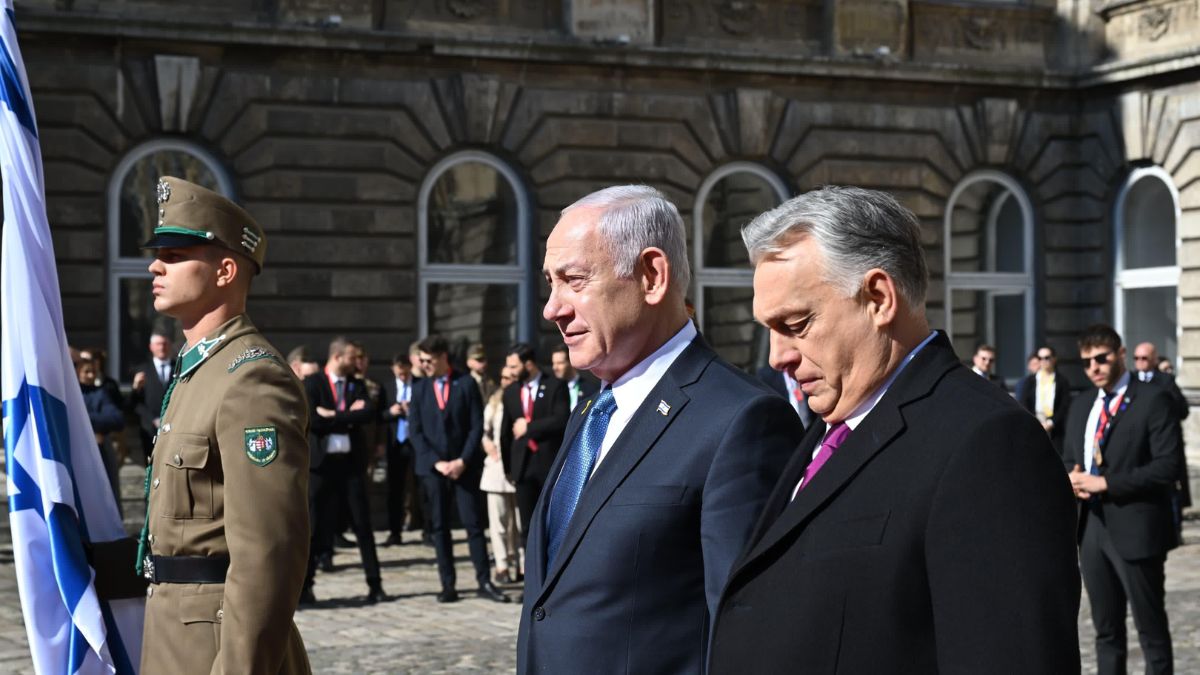Hungary’s refusal to arrest Netanyahu triggers ICC action and possible exit
 Israel Prime Minister Benjamin Netanyahu with his Hungarian counterpart Viktor Orbán during his visit to Hungary | X
Israel Prime Minister Benjamin Netanyahu with his Hungarian counterpart Viktor Orbán during his visit to Hungary | X
The International Criminal Court (ICC) has launched non-compliance proceedings against Hungary after it refused to arrest Israeli Prime Minister Benjamin Netanyahu during his visit to Budapest in early April. The court issued an arrest warrant against Netanyahu last November blaming him for alleged crimes against humanity based on how Israel’s conduct in Gaza. Hungary, however, welcomed the Israeli PM warmly and even announced that it would be pulling out of the ICC system.
The court has given Hungary time till May 23, pointing to the growing rift within the international system about responding to commitments under international law.
The ICC, established by the Rome Statute in 2001, requires all its 125 member states to arrest individuals against whom warrants are issued. Hungarian Prime Minister Viktor Orbán, who often challenges Western norms of law and morality, welcomed Netanyahu and called the ICC a "political" entity, and questioned its impartiality. He said Hungary’s commitment to the ICC was never wholehearted and pointed out that while the country signed the Rome Statute in 2001, it never fully enshrined it in national law.
The ICC has never accepted such justifications for pronounced noncompliance, clear from earlier cases such as Italy’s repatriation of a Libyan suspect and Mongolia’s failure to arrest Russian President Vladimir Putin.
Hungary’s likely exit from the court would make it the only EU country to abandon the ICC. Globally, others who have done so include the Philippines and Burundi. Budapest’s defiance reflects also a broader global retreat from the post-Cold War vision of a rules-based world order. In the 1990s and early 2000s, institutions like the ICC and the World Trade Organization were expected to uphold universal accountability. The ICC, unlike ad hoc tribunals for trying war crimes and crimes against humanity, was designed as a permanent court to prosecute atrocities like genocide. European nations, whose modern history was shaped by the post-War Nuremberg trials, championed it, while post-Soviet states like Hungary joined the system to align with EU values.
However, global support for such measures has waned. Major world powers like the United States, Russia and Israel never fully endorsed the ICC, either withdrawing signatures or never ratifying the Rome Statute. China and India have also opted to stay out.
Even within the EU, there is no universal or uniform commitment. Countries often choose political expediency. For instance, the German chancellor recently suggested hosting Netanyahu despite the warrant by finding a way out. The US, once a proponent of global institutions, has threatened ICC sanctions over warrants against Israeli officials. Hungary’s stance echoes actions like South Africa’s decision ten years ago to allow Sudan’s Omar Al-Bashir to escape an ICC warrant, though South Africa now leads global legal efforts against Israel, underscoring the need for consistent support for the court.
Orbán argues that Hungary’s stance is in favour of national sovereignty as against what he perceives as a ‘politicised’ court. Orbán has long positioned himself as a staunch defender of Hungarian interests, often clashing with EU institutions and officials. He argues that the ICC’s warrant against Netanyahu, a key ally, is a partisan move driven by liberal agendas. Hungary’s incomplete integration of the Rome Statute into national law is cited as evidence of its longstanding reservations about the court. For Orbán, withdrawing from the ICC aligns with his broader narrative of resisting globalist pressures, resonating with his far-right base.
Israel, which never signed the Rome Statute, views the ICC’s warrant against Netanyahu as an attack on its sovereignty. His supporters argue that the Gaza conflict, while devastating, involves complex security challenges that the ICC oversimplifies and point out that Israel’s judicial system is capable of investigating alleged crimes. They see the warrant as part of a broader campaign to delegitimise Israel, pointing to the court’s focus on Israeli actions while ignoring those of non-state actors like Hamas.
The Hungary-Israel-ICC controversy places another key challenge before the international legal system. As nations retreat from global institutions, the dream of universal accountability fades, leaving many to suspect that justice may not be able to transcend politics.
Middle East